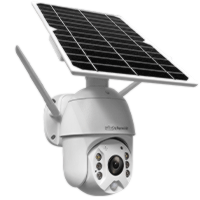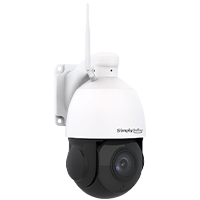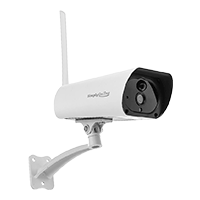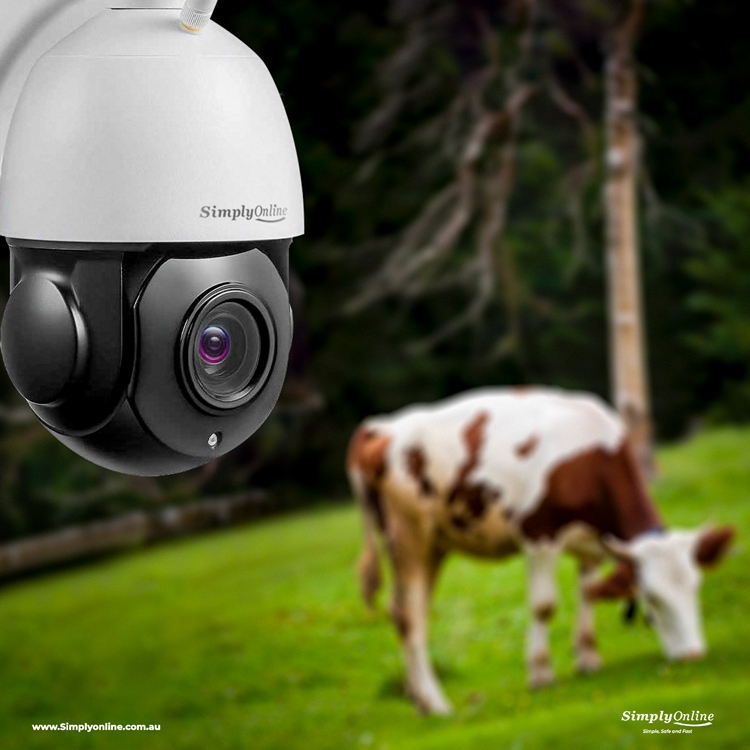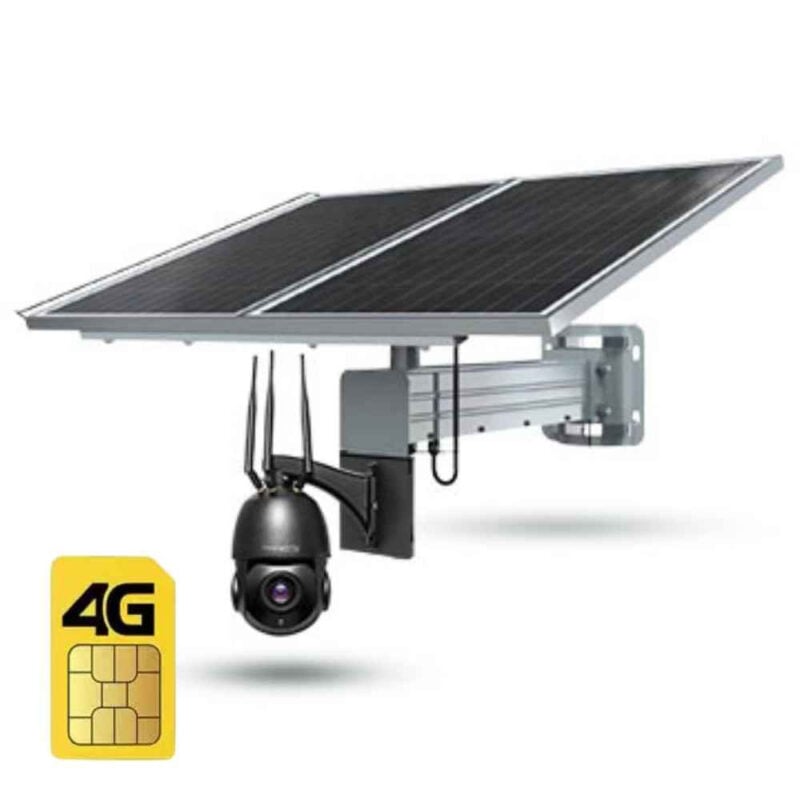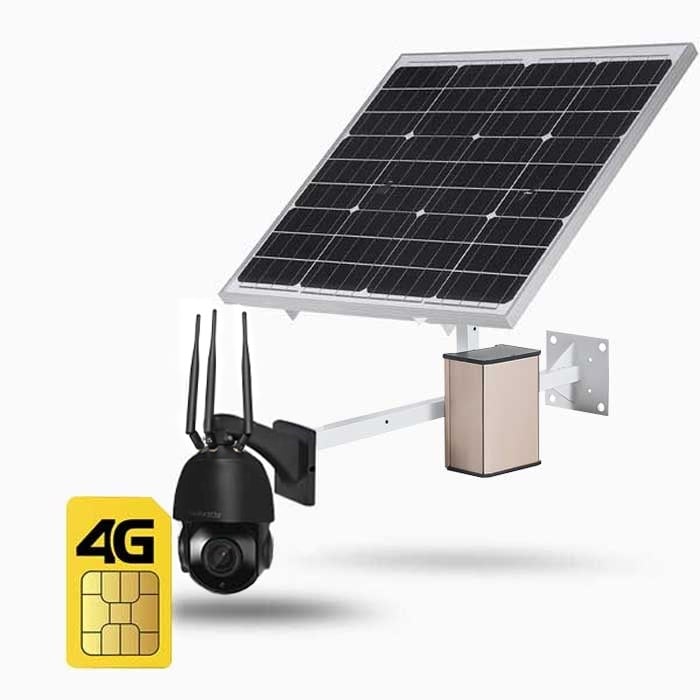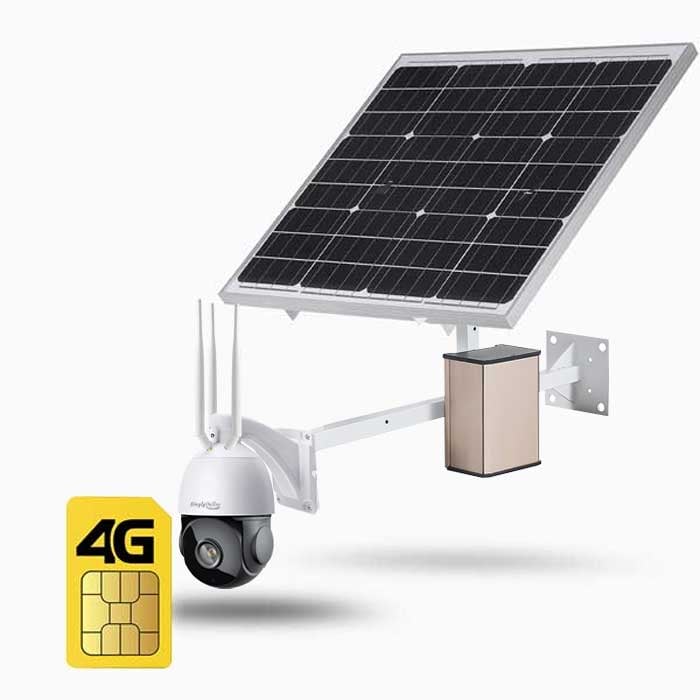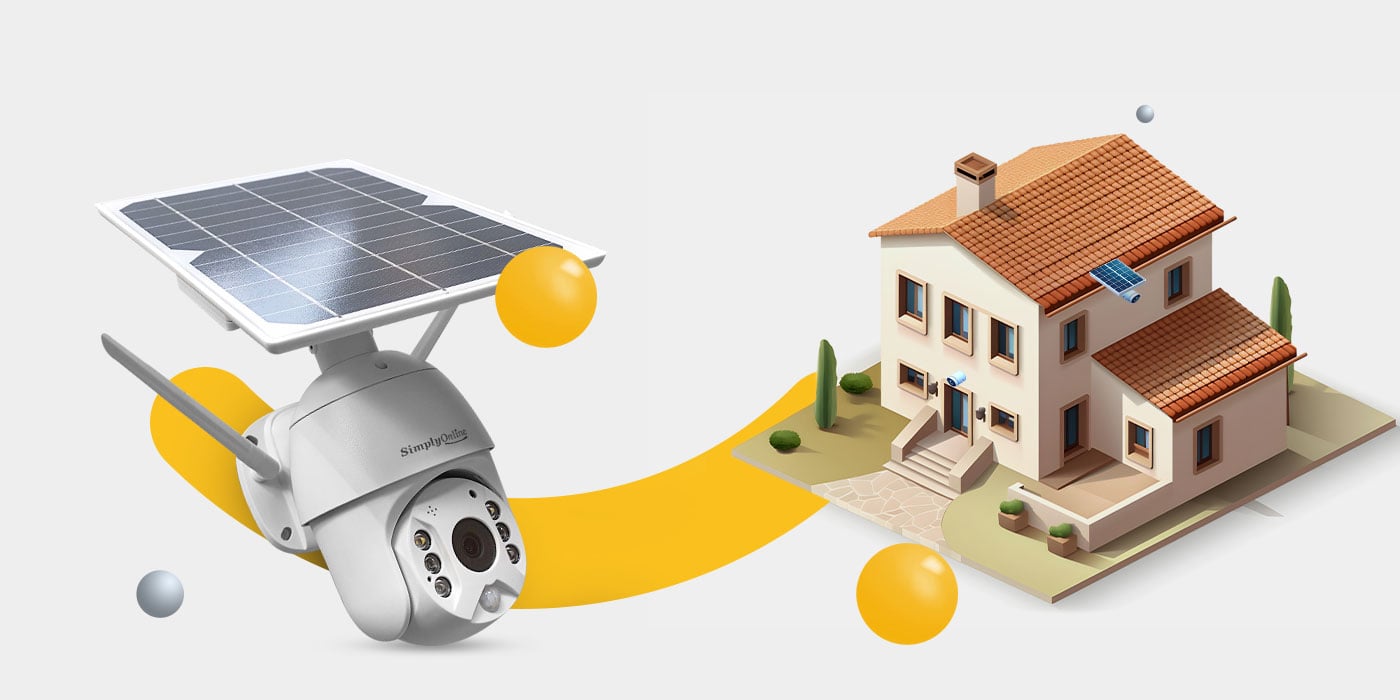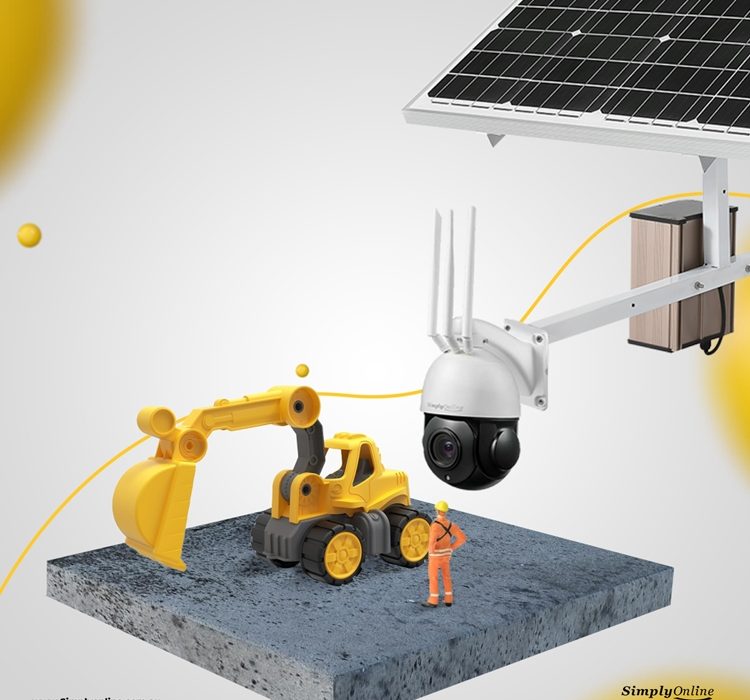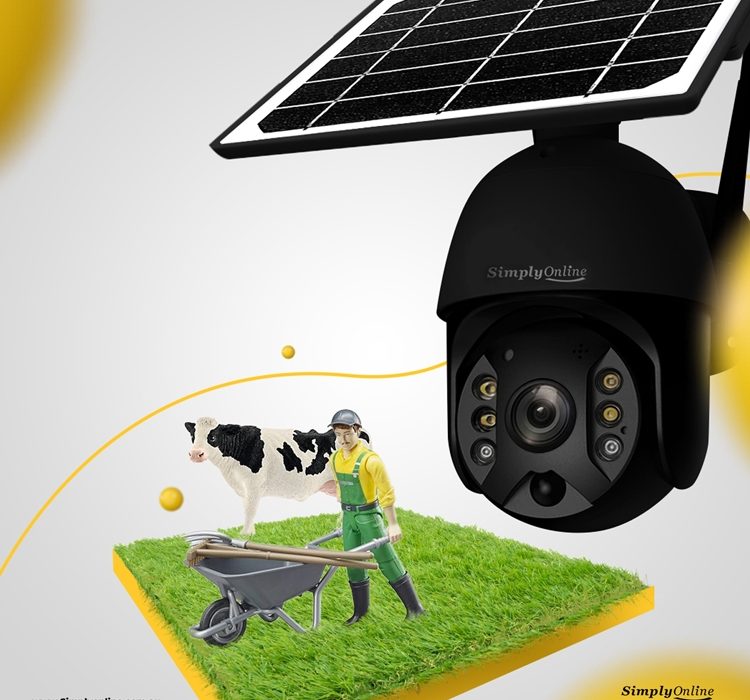There are a few things to consider when choosing the best home security systems for rural areas. One is whether you want security cameras that are 4G-enabled, as this will allow you to receive live notifications and view a live feed of your camera’s footage on your phone.
However, 4G signals can be patchy in rural areas, so you may need to opt for a Wifi camera instead. Another thing to keep in mind is that many Wifi home security systems will require a landline phone connection and good wifi coverage, which may not be available in rural areas. Be sure to check with your service provider before making any decisions. We are here to help you choose what is best for your situation.
Essential Considerations for Choosing the Best Home Security Systems for Rural Areas
Choosing the Home Security Systems for Rural Areas involves a keen understanding of the specific challenges associated with rural living. Here are some crucial factors to consider:
Coverage: Rural homes often have more extensive grounds, so a system that supports multiple cameras is vital. Evaluate how many cameras the system supports and if there’s flexibility to add more as needed.
Wireless Capability: Given the larger distances and potential difficulties in running wires in rural areas, wireless security systems can be particularly beneficial. These systems can be easier to install and offer the flexibility to place cameras and sensors where they’re most needed.
Resolution and Night Vision: In rural settings, the nearest streetlight might be far away, making excellent night vision capabilities essential. Additionally, high-resolution cameras will be necessary to capture clear images over broader areas.
Connectivity: Rural areas can sometimes have limited internet connectivity. Therefore, consider a system that can operate effectively with your available internet options. Some systems might also offer cellular or satellite backup options.
Power Supply: Reliable power options are crucial, especially considering power outages can be more common in rural areas. Look for systems with long-lasting batteries and/or solar power capabilities.
Range of Sensors: Apart from cameras, the best security systems should include various sensors like motion detectors, door/window sensors, and glass break sensors. In rural areas, where help may take longer to arrive, early detection of threats is crucial.
Reliable Alerts: A system that can send real-time alerts to your smartphone can be beneficial in a rural setting. This feature allows you to react quickly, even if you’re not at home.
Professional Monitoring: While DIY monitoring is often sufficient, professional monitoring services can provide an extra layer of security. They can dispatch emergency services on your behalf, which can be particularly useful in remote rural areas.
Durability: Since the equipment may be exposed to harsh weather conditions, ensure that the cameras and sensors are weatherproof.
By considering these factors, you can choose the best home security system for your rural area that offers a robust and comprehensive security solution, tailored to your unique needs.
Importance of Rural Perimeter Security
Rural perimeter security is important because it helps to keep your home and property safe. There are a few things you can do to help improve the security of your rural home, such as:
-Making sure all doors and windows are locked
-Installing a security system
-Keeping your yard well-lit
-Trimming bushes and trees around your property
-Having a good neighborhood watch program in place
By taking these measures, you can help to deter criminals and keep your family safe.
How Serious is the Threat to Farm Security?
Farm security is a serious issue for farmers and the ecosystem. Thieves and criminals often target farms for their valuable resources, which can disrupt the ecosystem and cause serious damage to the security system.
A security camera can help you protect your farm from these threats, but it is important to have a comprehensive security system in place to ensure the safety of your property.
Features of Rural Home Security Systems
Rural homeowners have unique security concerns that differ from those in urban areas. Home security systems for rural homes must be able to accommodate these differences.
Rural homes are often located far from neighbors and police stations, so response times to alarms can be longer. This means that a rural home security system must be able to operate independently for extended periods of time.
Sensors and alerts must be carefully calibrated to account for the increased likelihood of false positives in a rural area. Motion detectors, for example, may trigger an alert if an animal wanders onto the property. To avoid false alarms, rural home security systems often use multiple detectors, such as door and window sensors, that must all be triggered before an alarm is sounded.
Cellular CCTV and wireless perimeter systems are popular choices for rural home security, as they do not require a landline or internet connection. These systems are self-contained and can send alerts directly to the homeowner’s cellphone.
Security cameras are another important component of rural home security systems. Cameras can deter intruders and help identify them if they do break into the home. They can also be used to monitor activity around the perimeter of the property.
Top security cameras for Rural Areas in 2022 (Best Security Systems for Rural Areas)
As the world progresses, so does technology. Top security cameras for rural areas in 2022 will be able to connect to the internet by cellular 4g connection and it can be monitored by a cellular or wireless signal.
The good news is that these 4G solar-powered cameras can be placed outdoor without the worry of a backup battery or power source. The con is that some might find it difficult to install these cameras in their rural area, but with simply online cameras, it can be done DIY quickly and easily. If an intruder is detected, the camera will send an alert to the homeowner’s smartphone and they can take necessary action. This will daunt any potential burglar and give the homeowners peace of mind.
Here are some of our recommendations
- Massive 8MP 4G 200m Zoom + 100W 100Ah +128GB$2,450.00
- Product on saleMassive 8MP 4G 200m Zoom + 60W 40Ah +128GBOriginal price was: $2,396.00.$1,689.00Current price is: $1,689.00.
- Product on saleMassive 5MP 4G 200m Zoom + 60W 40Ah +128GBOriginal price was: $1,786.25.$1,586.25Current price is: $1,586.25.
Can I move with my security system?
Yes, you can move your security system with you. Solar powered 4g security cameras are becoming increasingly popular and can be placed anywhere in your new place.
WiFi Security Cameras
If you have a good WiFi connection, security cameras can be placed in remote areas to provide surveillance. Solar-powered security cameras are an option for locations where there is no power source.
Cellular Security Cameras
If you don’t have a good wifi connection, but do have a 4g signal, you can use solar 4g CCTV. These are great for remote areas where you may not have access to power and a good wifi connection.
Photos to your Phone
If you’re looking for a way to keep an eye on your home or business while you’re away, you may consider setting up security cameras. But what if you don’t want to deal with the hassle of a DVR? Or maybe you just want to be able to check in on things without having to go through the effort of logging into a computer. In that case, you might consider using an app to view your camera’s live feed.
There are a number of apps available that will allow you to view the live feed from your security cameras, and many of them will also send you live notifications if something is triggered. our camera companion apps will even let you view a live feed from multiple cameras at once. And best of all, since these apps are available for both Android and iOS, you can use them no matter what type of phone you have.
Two-way talk
The two-way talk feature on our cameras lets you listen and talk to whoever is near the camera through your phone. This is useful for security purposes, as it allows you to hear what’s going on around the optical zoom camera.
Motion sensor
One type of motion sensor security camera is the PIR camera. These cameras are often used in rural areas, as they are less likely to produce false alarms than other types of motion sensor cameras. PIR cameras work by detecting the heat signature of a human body, and then triggering an alarm.
Solar-Powered Security Cameras
Solar-powered security cameras are becoming increasingly popular, as they offer a number of advantages over traditional battery-powered or plug-in models. Solar panels can be installed on the roof or on a nearby pole, and the cameras can be integrated with the existing security system.
The cameras can be remotely accessed and controlled, however, The solar security cameras are affected by weather conditions, so make sure to select the ones that can store more power and charge more rapidly. something like our 120w Massive solar cameras
Solar-powered security cameras are an effective way to prevent theft and vandalism, and they can also be used to monitor traffic and pedestrians.
In summary, the Best Home Security system for a rural area is one that addresses the unique challenges that such locations often present. It requires comprehensive coverage, reliable connectivity, high-resolution cameras, robust night vision, and durable equipment. Additionally, having multiple power options and a variety of sensors, paired with real-time alerts and professional monitoring, can greatly enhance the effectiveness of the Best Home Security system in a rural setting. As you weigh these factors, remember that your ultimate goal is to ensure the safety and security of your property, and make an informed decision that best meets these needs.
